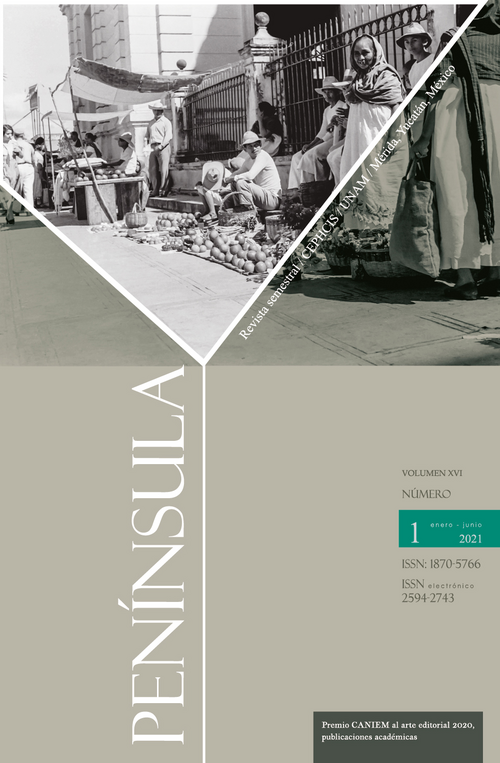Decolonizing as an Alternative for Biodiversity Conservation. The Case of Meliponiculture in the Yucatan Peninsula
Main Article Content
Abstract
This article addresses the revaluation of meliponiculture by groups of native stingless beekeepers —or meliponiculturalists— associated with civil society organizations (CSOS) in the Yucatan Peninsula, Mexico, from a decolonizing perspective. The analysis is contextualized in the decline of biodiversity associated with neoliberal-based public policies. The article also addresses the grievances of Mayan collectives in two conflicts associated with meliponiculture. Evidence based on a review of literature complemented by fieldwork suggests that groups of meliponiculturalists are themselves revitalizing traditional Mayan worldview, language, and communality, elements rooted in the local biocultural heritage. The analysis concludes that the revaluation of these elements, in addition to environmental justice movements, contribute to the defense of the territory, as an effective alternative for biodiversity conservation, through its impact on public policies.
Downloads
Download data is not yet available.
Article Details
How to Cite
López Barreto, M. F. (2021). Decolonizing as an Alternative for Biodiversity Conservation. The Case of Meliponiculture in the Yucatan Peninsula. Península, 16(1). https://doi.org/10.22201/cephcis.25942743e.2021.16.1.77997
Citas en Dimensions Service
Universidad Nacional Autónoma de México (UNAM), todos los derechos reservados 2013-2013.
